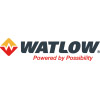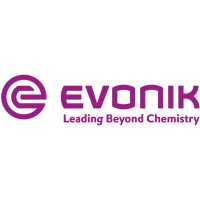-
Governments and businesses are increasingly committed to steep decarbonization targets, establishing hydrogen as a key component in the energy transition. As of this writing, McKinsey reports that 64 countries, representing 89% of global CO2 emissions, have made net-zero pledges, while financial institutions and private sector enterprises also continue to increase their decarbonization aspirations. Going forward, the energy mix is projected to shift toward clean electricity, complemented ...
-
Structured grid packings have traditionally been used for high severity services. Grids have a high open area, relatively low surface area, and a robust construction to withstand process upsets and to resist fouling. There are two main types of grids, categorized by structure - conventional grid and corrugated, high-efficiency grid. Developed first, conventional grids have a structure made from vertical members and angled flaps. The simple construct is fouling resistant, but has ...
-
Harsh rooftop testing ensures the performance of Neles™ valve controllers
Q: How do you verify that your valve controllers will operate in varying field conditions for years? We verify our valve controllers and actuators at our own field-testing system on the rooftop of our Valve technology center in Vantaa, Finland. We have several different types of valve positioners and actuators installed on the roof. This is long-term testing; all of the devices are here in the wintertime in cold temperatures and in the summertime when the temperatures can be ...
-
LO-CAT® II process for H2s oxidation and sulphur recovery
Lubrizol’s facility in LeHarve, France produces a lube oil additive via a batch reaction that uses elemental sulfur as a reactant and produces H2S as a byproduct. Lubrizol selected Merichem’s LO-CAT® II Hydrogen Sulfide Oxidation Process to sweeten H2S emissions and recover sulfur. The LO-CAT II system was chosen for its ability to handle the process variation in H2S concentration. During the 8-hour batch reaction cycle, H2S concentrations in the effluent gas ...
-
OptiFuel™ technology and Albemarle coker additives
Reduced coke yield and increased operating flexibility. For many years, delayed coking units have played an important role in oil refineries as one of the most cost effective processes to convert vacuum residue into more valuable products. The delayed coking yields are the result of thermal reactions and are mainly a function of feed properties and operating conditions such as furnace outlet temperature and drum pressure; however, this process results in coke yields from 20-40% ...
-
Seven reasons why maintenance managers choose HVTS vs HVOF
1. Market Recognition - 2. Porosity & Oxides Level - 3. Production Rate - 4. Variable Thickness - 5. Refurbishability - 6. On-site Safety, Quality, and Environment Protection - 7. Project Management.
-
Industry 4.0-ready flash point analyzer. MINIFLASH FP VISION is part of Grabner Instruments Vision analyzer family. The flash point tester MINIFLASH FP Vision combines the field-proven advantages of Grabner analyzers with a convenient touch-screen design. The Industry 4.0-ready instrument fully integrates with enterprise level networks and the COCKPITTM Software for Vision analyzer. KEY FEATURES - Advanced Flash Point Methods Measurements in accordance with the safest flash ...
-
The benchmark in atmospheric distillation testing. Thousands of users worldwide trust OptiDist™ for its state-of-the-art solution for performing atmospheric distillation, offering the most precision and ease of use. The versatile design enables multi-methods and non-standard capabilities which can easily be adapted for different applications. The testing and results are in full compliance with all atmospheric distillation methods.
-
Mixing systems for sulfur recovery, sulfur burning, or sulfuric acid plant reaction furnaces. BLASCH VectorWall™ Reaction Furnace Mixing System is a versatile, mechanically stable system consisting of a series of stackable six-sided blocks incorporating alternating tabs and slots on each side that are designed to ensure the blocks are positively locked together at installation. BLASCH VectorWall™is offered in a highly creep resistant mullite bonded composition designed to ...
-
Tray design features that reduce turnaround maintenance time
Column shutdowns can be costly. Production is halted and maintenance expenses accumulate without any offsetting revenue. Maintenance crews need to isolate, open, inspect, modify, repair, and close columns, all under pressure to complete work as expeditiously as possible. Minimization of shutdown costs begins during the equipment design phase. Sulzer incorporates several features into our tray designs that can reduce column shutdown time. Tray Replacement and Installation Tray ...
-
Advanced process control for Prime-G+™
The benchmark technology for ultra low sulfur FCC gasoline. Deep HDS of cracked gasoline in one sweet little process. Deep hydrodesulfurization (HDS) of FCC gasoline (the largest sulfur contributor in the gasoline pool) is required to reduce gasoline pool sulfur content. Technologies must meet the following challenges: • Good octane retention • Excellent gasoline yield retention • No RVP increase • Minimum hydrogen consumption • Operational reliability • ...
-
Tray designs for extreme fouling applications
Today refiners experience a lot of problems with processing of opportunity or heavy crudes. Such crudes have very high sulfur content and require the addition of amine scavengers before desalting. These amines decompose in the heater and create ammonium chlorides in the presence of water in the top of the crude tower. Dissolved salts start to precipitate and crystallize when the solution becomes saturated and water is vaporized. Such fouling starts to grow below and above trays ...
-
Watlow® has over 40 years of experience designing and manufacturing heat exchangers, and we have the knowledge, experience and expertise required to create optimal heating solutions. Watlow has taken tried and true, critical design criteria and improved it to create a new generation heating technology — the OPTIMAX® heat exchanger. Watlow’s new OPTIMAX technology combines optimal fluid dynamics, efficient heat transfer, low pressure drop and a compact and reliable package ...
-
Enabling energy transitions with the Callidus® Ultra Blue® Burner System
Join this webinar to learn how your renewable energy and net zero operations can dramatically lower nitric oxide (NOx) emissions with the Honeywell Callidus Ultra-Blue Burner system. Fuels are changing in order to meet corporate commitments to carbon reduction and net zero goals. As your operations use more hydrogen and renewable fuels, production of nitric oxide is increasingly scrutinized in both external regulations and internal emissions targets. Attending this webinar ...
-
Excel® Technology: The Sustainable Solution for HydroProcessing Catalysts
Unveil the path to sustainable catalyst processes with Excel® Rejuvenation Technology! Join us as we delve into the art of catalyst rejuvenation, uncovering the means to propel your processes towards enhanced sustainability and waste reduction. Learn how to steer your operations away from wasteful practices and embrace sustainability using Evonik's Excel® Hydroprocessing Catalysts solutions. Our certified Life Cycle Assessment (LCA) lays bare the potential emissions you can ...
-
Developments and solutions for renewable fuels testing
Regions and nations around the world are swiftly translating their climate targets into investments in renewable energy and fuel production. This necessitates a multifaceted approach and innovative solutions. Join us for this webinar as we report on the latest developments in the renewable fuels industry, with a particular focus on the transportation sector. We will discuss a range of renewable fuels, including SAF, ethanol, biodiesel, hydrogen, and their derivatives, while exploring ...
-
Structured Catalyst for Steam Methane Reforming
Join this webinar to learn about the benefits of ZoneFlow Structured Catalyst for Steam Methane Reforming. Honeywell UOP and ZoneFlow Reactor Technologies recently conducted pilot plant testing of the ZoneFlow Structured Catalyst in a large-scale pilot plant at Université Catholique de Louvain in Louvain-la-Neuve, Belgium. In this free webinar, you will have the opportunity to learn about the technology and benefits that were seen in the pilot test run at near-commercial levels: • ...
-
Improved H2 purification and recovery with UOP Polybed™ Pressure Swing Adsorption
Pressure Swing Adsorption (PSA) is the industry standard for H2 purification and long-term, reliable recovery. Honeywell UOP’s PSA technology is relied on by refineries and hydrogen producers worldwide, with more than 1,100 systems installed in over 70 countries. In this webinar, you will have the opportunity to gain valuable insights: - Understand what makes Honeywell UOP Polybed™ PSA purification technology unique. - Learn about recent changes in Honeywell UOP’s ...
-
Navigating Complexities of Renewables Processing
Refineries are shifting away from producing traditional fuels to remain relevant, compliant and profitable. Join us to learn more about recent developments in renewable feedstocks processing. In this webinar from Ketjen, you will gain an understanding of the regulations and drivers that shape the renewables market. You will also have a chance to learn about operational challenges you may face while processing feedstocks with various amounts and grades of HVO or waste plastic ...
-
Fundamentals of Safe Liquid Grab Sampling
Every day, grab (or spot) sampling systems allow oil, gas, and chemical companies around the world to simply and accurately determine the quality and composition of the fluids they process. In many cases, however, opportunities remain to improve the ease-of-use, safety, and maintenance requirements of these system by rethinking aspects of their design. In the case of panels that draw liquid samples into laboratory bottles, changes to valve assembly designs, specifically, can yield ...
-
Economics of Decarbonisation with Honeywell Sustainability Portfolio and IRA
The Inflation Reduction Act (IRA), passed by the US government on August 16, 2022, provides nearly $370B in clean energy and climate funding over the next decade There has never been a better time to invest in a more sustainable future. Our upcoming webinar will provide valuable insights into key IRA provisions and enabling technologies to accelerate industrial decarbonisation and achieve your long-term financial and sustainability goals. This webinar will offer an incredible ...
-
Applying Crude to Chemicals technologies for effective petrochemicals production
With the consumption of petrochemicals increasing globally and the demand for transportation fuels under pressure from energy transition initiatives, refiners are being driven to optimize their facilities and explore revenue streams outside of the traditional transportation fuel value chains. There are several alternatives and methodologies to capture additional value from crude oil through conversion into petrochemicals to consider. This webcast covers: - How to convert a ...
-
A new perspective on improving process and operational efficiencies
Presented with ageing equipment and ever-increasing environmental restrictions, process engineers are challenged with maximizing efficiency and mitigating problems. Without the necessary information, facing this challenge can be difficult or impossible. Tracerco provides you with the insights you need to help troubleshoot production problems and optimise processes. With the widest range of scanning and tracer diagnostic services on the market, Tracerco helps the refining and ...
-
A complementary and holistic approach using mobile water solutions
High water quality across petroleum refining and petrochemical industries is an integral part of every process, including cooling tower make-up and blowdown, desalination, filtration. Additionally, these industries unavoidably generate large volumes of wastewater. The growing demand combined with the increasing water stress and stricter regulations is creating a situation where water is becoming not only costlier but also a more valuable resource. This is leading companies ...
-
Preparing for a petrochemical plant revamp or technology upgrade
Petrochemical producers have recently confronted unprecedented volatility in crude oil prices and limits on advantaged feedstock, while the refining and gas sectors remain vigilant to global supply conditions. However, some industry challenges remain unchanged, such as the need to optimize plant operations and cut carbon footprint by reducing the amount of energy required to drive a plant. Equipment nearing the end of its operational life can not only put plants at risk of ...
-
Elemental Analysis for Refining and Petrochemicals
Seamless Laboratory and Process Analysis for Total Sulfur and Nitrogen. As expected shifts to petrochemical and crude oil-to-chemicals (COTC) projects expand through 2050, the need for elemental analysis in refining and petrochemical continues to grow. Refiners must meet stringent requirements due to the increase of nitrogen and sulfur in the crude, requiring more focus on processing and control. Join us to learn about laboratory and process analysis for total sulfur and nitrogen. During ...
































